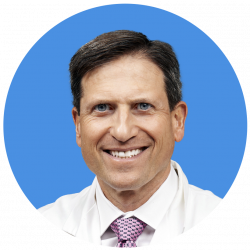Building Sweat Equity
Sadly, many people seek and ultimately obtain financial wealth at the expense of their health, not realizing the fact stated so clearly by Ralph Waldo Emerson: “The first wealth is health.” Without health, having financial wealth is virtually meaningless.
We do our best to save for retirement. We earmark money for Individual Retirement Accounts, 401K plans, annuities, and other retirement vehicles to invest for the future when we no longer will be working and will need to tap our savings to live. Hopefully, we will be living for many years after retirement.
Sweat equity is a business term used figuratively to describe the non-financial contribution of time and effort fundamental to the success of a business endeavor. I borrow this term and extend its use literally to the fitness and health arena. As many of us hopefully have a retirement savings account, I propose also having an “exercise savings account” as well. It consists of the time and effort put into exercising and maintaining one’s fitness. The principles of obtaining and maintaining an exercise savings account run parallel to those of obtaining and maintaining a financial retirement account and are as follows:
· Have a plan. Understand the need for and the importance of your fitness account. If you invest wisely in this account, it will compensate you well.
· Pay yourself first. Carve out the time for fitness and commit to it automatically—this guarantees that it is a priority to be tampered with only under the most unusual circumstances. This will ensure regular deposits to build your personal fitness nest egg.
· Slow and steady approach. A moderate amount of exercise, performed diligently and regularly over time will ultimately allow for complete funding of your fitness account.
· Start early. The earlier you begin the fitness account, the more time available to work the magic of compounding, when the investment returns themselves earn further returns. You will earn returns in the form of interest and dividends (improved quality of life), and capital gains (augmented quantity of life). If you missed the boat on starting early, don’t waste another minute…start today. It is never too late.
· Long-term perspective. The greater the investment in terms of time invested, the larger the fitness nest egg builds. The commitment to this plan needs to be a lifetime endeavor. No gimmicky investments! No shortcuts! No tricks or instant rewards! No nonsense!
· Seek investment counseling. Not everyone is capable of managing his or her own fitness account—if not, seek the services of a professional personal trainer or fitness instructor. Their services will be well worth their cost.
· Diversify. Deposit into your portfolio a variety of different forms of fitness investments, including aerobic and endurance activities, weight training, core, flexibility exercises, etc. Shake it up so that you don’t experience boredom and you get the benefit of working different areas of your body and different aspects of fitness.
· Eliminate debt. Pay down and eliminate “debt,” of which one component can be thought of as the fitness deficit that you owe yourself from past exercise omissions. The other component should be thought of as your current debt in terms of excessive body weight and the burden of bad lifestyle choices. Through exercise and healthy lifestyle habits you will reap the benefits of becoming debt free, or at least unburdened from some of your debt.
Your contributions, effort and time expended and tenacity will ultimately make you healthy-wealthy. And some day, when sickness or disease inevitably surfaces, you will be better equipped to strike a noble fight because of years of investment in yourself. Every moment spent exercising and remaining active will reduce your risk of death–money in the bank!
 Back to Blog Homepage
Back to Blog Homepage
